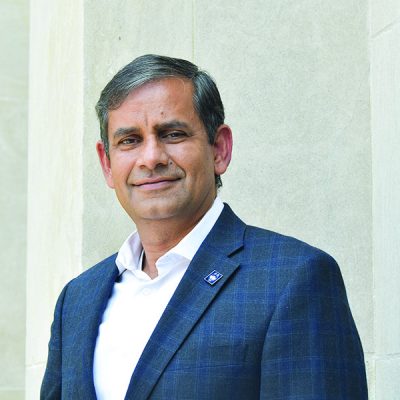
From the Dean
Whether it was through innovative research, transformational education, or extension outreach, faculty and students in UConn’s College of Agriculture, Health and Natural Resources (CAHNR) continue to push the limits of what is possible. As a land grant institution, generating knowledge that positively impacts the world is in our roots; it is what drives all that we do. CAHNR faculty have built on that original foundation of discovery to improve quality of life today for a sustainable global future tomorrow.
With this report, we highlight some of the ways that the CAHNR community has helped members of our state, industry, and governments to address unprecedented challenges in health and the natural world. We’re proud of our accomplishments and humbled that we have the chance to provide such a valuable service to our communities.
The last year has seen much advancement in our strategic vision and our contribution to UConn’s mission. We are ready to keep up that momentum for many years to come, because at UConn CAHNR, innovation never stops.
By the Numbers
We know that the impact of our work goes beyond metrics and data, but tracking quantitative progress helps align our activities with our goals and resources. Last year, data showed growth across all aspects of CAHNR’s mission, from delivering accessible, life-transformative education to our students to conducting innovative research and ensuring it reaches our communities.
Research
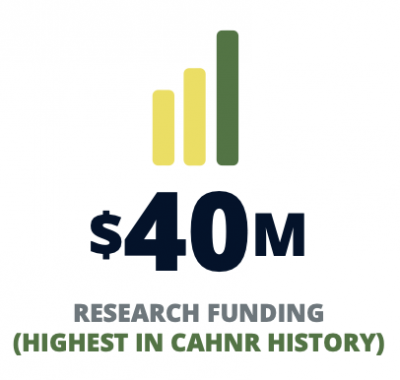
Education
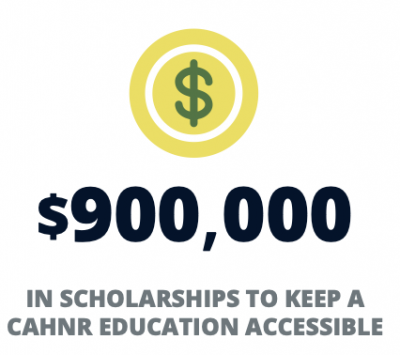
Extension
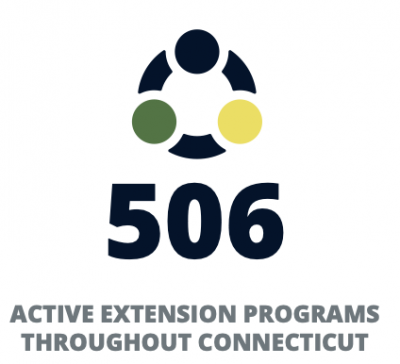
Speaking of CAHNR
Alumni and Partners
Professors push us to succeed, not to see us fail. They work with us to make it what we need.
- Alyssa Cleland ‘23, Urban Forestry and Arboriculture, Ratcliffe Hicks School of Agriculture
Strategic Vision
Exploring the connections between food, natural resources, and human and animal health for a more sustainable future.
Ensuring Sustainable Agriculture and Food Supply
From tackling food insecurity to maintaining a vibrant agricultural economy in Connecticut, we work to keep our food supply sustainable and our economic engine firing on all cylinders.
Enhancing Global Health
Human, animal, and environmental health are all connected. By taking a One Health approach, we work to promote health and prevent disease at the local, national, and global levels.
Promoting Diversity, Equity, Inclusion and Justice
We recognize that systems have historically privileged some and harmed others. We are dedicated to working together to build a welcoming, equitable community where all can thrive.
Advancing Climate Adaptation and Resilience
Climate change represents a threat to us all, from more extreme storms to severe droughts and the prevalence of invasive species. We work with stakeholders to create and maintain a sustainable environment and robust economy for current and future generations.
Fostering Sustainable Landscapes
Whether rural, urban, or somewhere in between, we work to develop environmentally aware residents who support healthy lifestyles and ecosystems.
Sustainable Agriculture
Ensuring a vibrant and sustainable agricultural industry and food supply.
Overcoming Decades-Long Challenges for Cultivated Meat
Stem cell technology from CAHNR animal scientists is paving the way for future advances in sustainable food production.
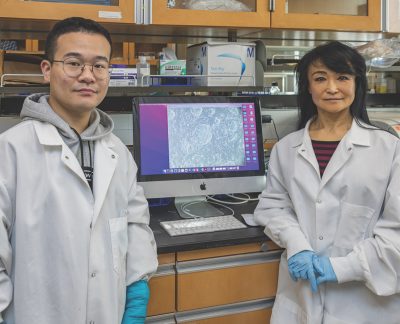
Stem cells have been used for years as therapeutics for human health, but they may play a critical role in a sustainable global food supply through the development of cultivated meat.
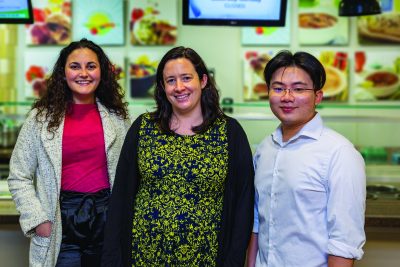
Raising Awareness of Local Food Sourcing in UConn Dining Halls
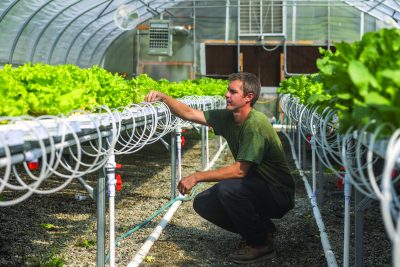
Supporting Connecticut’s Greenhouse Industry
Understanding Sex Differences in Heat Exertion for US Defense
In the face of a changing climate, CAHNR researchers examine how female warfighters respond to the physical demands of combat.

Recent studies found that female soldiers were experiencing exertional heat illness at a higher rate than their male counterparts. Yet to date, there has been limited research on how female warfighters respond to the physical demands of combat in climatically severe regions.

Raising Awareness of Local Food Sourcing in UConn Dining Halls

Supporting Connecticut’s Greenhouse Industry
Enhancing Health
Enhancing health and well-being locally, nationally, and globally.
